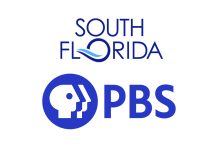With increasing expenses going towards attaining a higher education, and a decreasing amount of available resources to fall back on, it’s more important than ever to understand the dynamics of managing student loans before and after graduation. Increased loan debt not only dampens the economy but potential income as well.
Here is some helpful information on repayment plans and those that can aid in paying off student loans.
• Standard plans have the shortest term agreement. Payments are fixed at a sum of at least $50 monthly and are contracted for up to 10 years. With this plan, the borrower will pay less interest over time than other plans.
• Graduated payments are low at first and then increased about every two years. Plan terms are for 10 years like the Standard plan, but more interest is paid over time.
• Extended payments can be fixed or graduated. Monthly payments are lower than the Standard plan if your total loan amount is more than $30,000. This plan has a timeline of 12-15 years. Like the Graduated plan, you will pay more over time.
• Income-Based (IBR) are awarded to those that have partial financial hardship. Monthly payments are lower than the Standard plan payments but you’ll pay more over time because the loan life is up to 25 years. However, if the full loan amount is not paid after 25 years, the remaining balance may be canceled. • Income Contingent payments are determined each year based on annual income, family size and the total sum of your loans up to 25 years. This plan mirrors the IBR except that income tax may be due on the amount forgiven after 25 years of payment.
• Income-Sensitive payments are based on annual income and payments are subject to change as your income changes. The plan has a life of up to 10 years. Monthly payments are lower than the Standard plan but you’ll pay more over time.
• Deferment is a short-term delay of payment that the borrower and lender agree to. Deferment is typically granted to those that are re enrolling in school, experiencing financial difficulties and/or unemployed. Keep in mind that during a deferment, the payment of the principal balance is delayed and depending on the loan classification, the government will pay the interest charges during the delayed period.
• Forbearance is granted to those that cannot make their loan payments and do not qualify for deferment. Payments can be postponed or reduced for up to 12 months; however, interest will continue to accrue. For discretionary forbearances, the lender warrants whether the borrower meets the criteria for forbearance, which is typically granted to those that experience financial hardship and illness. On the other hand, lenders are required to grant mandatory forbearances to borrowers that are performing teaching services, serving in a national service position, medical internship or residency program, and if the total monthly sum of the payment is 20 percent or more than total monthly gross income.
• Delinquency refers to borrowers that have not paid their most recent statement(s). A loan becomes delinquent the first day after a missed payment. Delinquencies are reported to the major credit bureaus (Experian, Equifax and TransUnion) for at least 90 days. It’s best to stay clear of this option because it results in high interest rates and lower credit scores. If you anticipate a missed payment, contact your loan provider — keeping a positive rapport will help in the long run and open up other payment options.
• Defaulting on loans has serious consequences. Failure to make loan payments puts the borrower in high risk of going into default. A slew of problems emerge due to defaulting in loan payments — among them, negative credit ratings, higher interest rates, difficulty receiving future loans for cars or homes, apartment rentals and receiving homeowners and car insurance.
Whether you are a recent college grad or a working professional still making loan repayments, it’s never too late to understand your loan terms and the options that are available to decrease your loans amounts or decrease the time taken to pay off your loans.
For more information on student loans and repayment visit online at www.studentaid.ed.gov/repay-loans






